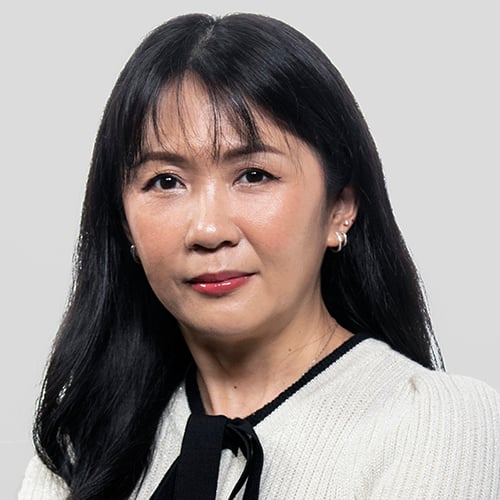Despite having one of the youngest populations in Asia that enjoys steep mobile penetration rate and soaring internet usage, the Philippines struggles to become a digital economy.
Only 2% of retail transactions are done electronically and 98% of small financial transactions are done in cash. But the country’s nimble and digitally-focused startups could change all that.
In fact, in the last three years the barely digitized economy has been spawning financial technology firms that target the masses and are now attracting the most interest from entrepreneurs and investors.
Solutions that can provide funding (eg online pawnshop, peer-to-peer lending, online private lenders) in a fast and convenient manner, or payment solutions like prepaid cards that do not require tech savviness on the part of the consumer have bright prospects. The fintech startup community has grown to such an extent that the country’s central bank, the Bangko Sentral ng Pilipinas (BSP), is closely monitoring fintech platforms such as cryptocurrencies like Bitcoin, peer-to-peer lending, and crowdfunding sites. Regulations for these platforms could follow once they reach a certain scale. In February 2017, BSP issued a guideline governing virtual currency exchanges in the country.
But just like in other Asian countries, local startups in the Philippines face obstacles. Poor infrastrucure is a major challenge. Other problems include limited developer and leadership talent, lack of a healthy funding ecosystem, no scalable e-payment alternative, weak last-mile delivery options for e-commerce, and lack of consumer trust.
Regulations also present some challenges for fintechs. BSP has adopted a wait-and-see approach to allow space for innovations unhampered by regulations. This gives more aggressive firms time to experiment on a smaller scale. But a lack of regulation is limiting investments from the more conservative investors.
Despite the challenges, daring entrepreneurs continue to push fintech solutions in this transitional gray area. “Majority of the new startups that I’m seeing in the (Philippine) market currently is in the fintech vertical, addressing various opportunities in financial inclusion of the consumer and institutional market segments,
says Jojo Flores, co-founder of Silicon Valley-based accelerator Plug and Play Tech Center.
says Jojo Flores, co-founder of Silicon Valley-based accelerator Plug and Play Tech Center.
There is diversity in terms of offerings even in the fintech space, ranging from payments processing, to blockchain-enabled remittences and credit analytics.
Gerry Cruz, co-founder of industry trade association Fintech Philippines Association, observes that major trends in the country include processors (eg companies like DragonPay, Qwikwire), remittance (Ayannah, Lhuillier), wallets (Gcash, Paymaya, EON), finance (Lenddo, First Circle, eComparemo) and lately cryptocurrency (Coins, SCI, Bloom) where several local fintech startups have raised funding and gained traction.
Financial inclusion is a strong theme among many startups as it addresses the relatively low banking penetration in the population.
“Startups are experimenting with strategies to provide consumers with access to financial services such as e-commerce, ‘thin file’ credit scoring based on alternative data sources (Lenddo), access to digital wallets (Coins.ph) and local financial products including credit cards, loans, and insurance (eCompareMo/C88),” says Alex Alabiso, director of portfolio development for Kickstart Ventures, the corporate venture capital arm of telco giant Globe.
One of these startups, online alternative lending platform Acudeen, specializes in underbanked small and medium enterprises with little or no real property assets to use as collateral. Instead, small businesses sell their invoices or receivables from large companies for working capital requirements. After winning the SeedStars grand prize of US$500,000 in a global contest, the startup immediately scaled and closed financing deals with local banks such as local top tier bank RCBC’s Rizal Microbank.
“I see large corporations partnering with startups more as our industry provides numerous business values that large corporations can’t or may not want to tap into,” says Magellan Fetalino, Acudeen CEO.
With a burgeoning fintech community, industry players are driving efforts to address the needs of the unbanked or underbanked population to participate in the formal financial and banking system. At present only 31% of the Philippine adult population have a bank account and 86% of Philippine households are unbanked.
Moving to the next stage
With the recent quarterly growth of 6.5%, the Philippine economy continues to surprise investors.
With the recent quarterly growth of 6.5%, the Philippine economy continues to surprise investors.
This is also reflected in the local fintech scene as more investment deals are expected in the pipeline. According to Jason Lee, global chapters director of fintech event organizer Next Money, “A lot of the Philippines’ economy are linked to a prominent family and it’s a matter of time when these families will migrate from investing in the traditional economy to the startup economy.
He adds, “There is a growing active venture capital (VC) scene of VCs from the region coming to invest in the Philippines like 500 Startups.”
John Bailon, co-founder and CEO of blockchain technology startup Satoshi Citadel Industries (SCI), admits the process to raise funds in the past has been tough for many startups. “But I think more and more investors are seeing the opportunities in the Philippines,” he adds. SCI received funding last 2016 for an undisclosed sum from K Venture Group, the investment arm of South Korean web giant Kakao.
Interest in blockchain technology is driving the next phase of fintech in the Philippines. “Locally there is an increasing interest on various business cases that could be built with the use of digital currencies (such as Bitcoin or Ethereum) or by using blockchain as part of the tech stack. This is especially true among small fintech startups who are hopeful that this technology could give them the chance to leapfrog incumbents and other competing fintechs,” says blockchain community organizer and corporate lawyer, Rafael Padilla, who specializes in financial technology, digital currencies, and blockchain.
For fintech players, they see blockchain technology as a means to drive further innovation that reduce inefficiencies in the payments system, create a better channel to customers, and build new business models, while riding the tide of a growing economy. While most players have begun by bootstrapping their startups, others gained investment from regional funders such as SCI and Coins.ph.
With a bullish fintech industry, will the Philippines see a unicorn grow from its ranks in the next few years?
SCI’s Bailon believes it isn’t quite far-fetched. “The fintech space is where the first Philippine unicorn will come from, and that has to do with the fact that there are so many opportunities in the Philippines for grittier, leaner and smarter entrepreneurs to build real, lasting businesses.”
This was echoed by Kickstart’s Alabiso. “With strong GDP growth and a steady increase in the middle class population, it’s a matter of time before the market meets demand and valuations start to rise. The Philippines is already host to several existing startups that have the potential to be the first local unicorn.”





.jpg)
.jpg)


